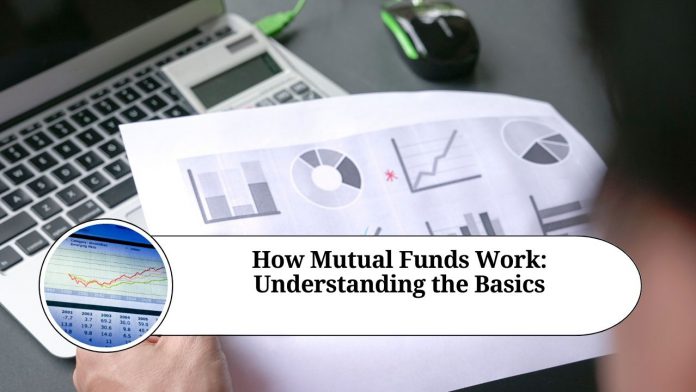Mutual funds are a popular investment option that allow individuals to pool their money together and invest in a diverse portfolio of stocks, bonds, and other assets. In this blog, we’ll take a closer look at how mutual funds work and what you need to know before investing.
What is a mutual fund?
A mutual fund is a type of investment vehicle that pools money from multiple investors to invest in a portfolio of securities such as stocks, bonds, and other assets. The portfolio is managed by a professional fund manager who makes investment decisions on behalf of the investors. Investors in the mutual fund share in the gains, losses, income, and expenses of the fund in proportion to their investment.
How do mutual funds work?
When you invest in a mutual fund, you purchase shares of the fund. The price of the shares is determined by the net asset value (NAV) of the fund, which is calculated by dividing the total value of the fund’s assets by the number of outstanding shares.
The fund manager invests the money in the mutual fund in a diversified portfolio of securities based on the investment objective of the fund. For example, a mutual fund that invests in stocks may focus on a specific sector such as technology, healthcare, or energy. A mutual fund that invests in bonds may focus on a specific type of bond such as corporate bonds or government bonds.
The fund manager makes investment decisions on behalf of the investors and is responsible for buying and selling securities to achieve the investment objective of the fund. The fund manager also handles the administrative tasks such as accounting, recordkeeping, and reporting to the investors.
What are the benefits of investing in mutual funds?
One of the main benefits of investing in mutual funds is diversification. By investing in a mutual fund, you gain exposure to a diversified portfolio of securities without having to buy individual stocks or bonds. This helps to spread your investment risk across multiple assets and reduces the impact of any one security on your portfolio.
Mutual funds also offer professional management, which can be particularly appealing to investors who do not have the time, knowledge, or expertise to manage their own investments. The fund manager has access to research and analysis tools that can help them make informed investment decisions and potentially generate higher returns for the investors.
Another benefit of investing in mutual funds is liquidity. You can buy and sell mutual fund shares at any time during the trading day, which provides flexibility and convenience.
What are the risks of investing in mutual funds?
Like any investment, mutual funds carry risks. The value of the fund’s shares can fluctuate based on the performance of the underlying securities. This means that you may not get back the full amount of your investment and may even lose money.
Mutual funds also carry fees and expenses such as management fees, operating expenses, and sales charges. These fees can vary depending on the fund and can impact the overall return of your investment.
Conclusion
Mutual funds are a popular investment option that provide a convenient and accessible way for individuals to invest in a diversified portfolio of securities. While mutual funds offer many benefits, it’s important to understand the risks and fees associated with investing in them. By doing your research and working with a financial advisor, you can determine whether mutual funds are the right investment option for you.
Read more useful content:
- How to invest in mutual funds
- Best Technology Mutual Funds
- All about mutual funds-types & importance
- The Power of SIP Investment in Mutual Funds
Frequently Asked Questions (FAQs)
Q: What is a mutual fund?
A: A mutual fund is an investment vehicle that pools money from multiple investors to invest in a diversified portfolio of securities such as stocks, bonds, and other assets.
Q: How does a mutual fund work?
A: When you invest in a mutual fund, you purchase shares of the fund. The fund manager invests the money in the mutual fund in a diversified portfolio of securities based on the investment objective of the fund. The fund manager makes investment decisions on behalf of the investors and is responsible for buying and selling securities to achieve the investment objective of the fund.
Q: What is the net asset value (NAV) of a mutual fund?
A: The net asset value (NAV) of a mutual fund is the price of one share of the fund. It is calculated by dividing the total value of the fund’s assets by the number of outstanding shares.
Q: What is diversification in mutual funds?
A: Diversification in mutual funds means investing in a variety of securities to spread your investment risk across multiple assets and reduce the impact of any one security on your portfolio.
Q: What are the benefits of investing in mutual funds?
A: Benefits of investing in mutual funds include diversification, professional management, and liquidity.
Q: What are the risks of investing in mutual funds?
A: Risks of investing in mutual funds include fluctuations in the value of the fund’s shares based on the performance of the underlying securities and fees and expenses associated with investing in mutual funds.
Q: What fees are associated with investing in mutual funds?
A: Fees associated with investing in mutual funds include management fees, operating expenses, and sales charges.
Q: Can I buy and sell mutual fund shares at any time?
A: Yes, you can buy and sell mutual fund shares at any time during the trading day, which provides flexibility and convenience.




















